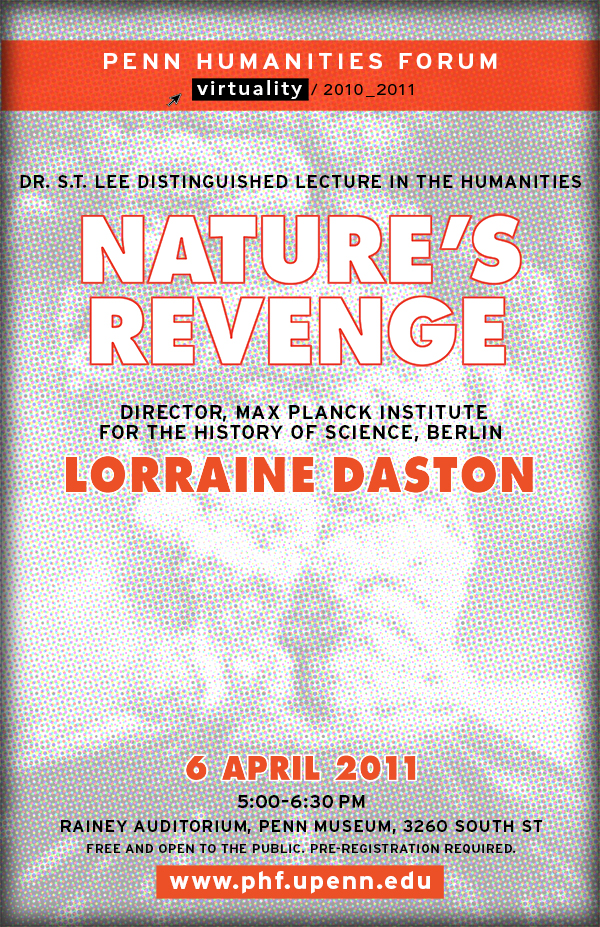Are natural disasters really all that natural? Not so long ago, enlightened opinion viewed them as “acts of God,” beyond human control. Today we increasingly see them as falling within the sphere of our own obligations and responsibilities. Renowned historian of science Lorraine Daston will discuss this shift from the idea of an all-powerful Mother Nature to that of nature as a vulnerable child—needing human protection and nurture but still capable, when injured, of exacting terrible revenge.
Lorraine Daston has published on a wide range of topics in the history of science, including the history of probability and statistics, wonders in early modern science, the emergence of the scientific fact, scientific models, objects of scientific inquiry, the moral authority of nature, and the history of scientific objectivity. Histories of Scientific Observation, co-edited with Elizabeth Lunbeck (Vanderbilt University), was published last fall by the University of Chicago Press. She is currently completing a book on "Moral and Natural Orders."
She has taught at Harvard, Princeton, Brandeis, and Göttingen Universities, as well as at the University of Chicago, where she is Visiting Professor in the Committee on Social Thought. She has also held visiting positions in Paris and Vienna and gave the Isaiah Berlin Lectures at the University of Oxford (1999), the Tanner Lectures at Harvard University (2002), and the West Lectures at Stanford University (2005). In 2010 she was a Fellow of the Siemens-Stiftung in Munich. She has twice won the Pfizer Prize of the History of Science Society and is a Fellow of the American Academy of Arts and Sciences as well as a Member of the Berlin-Brandenburg Academy of Sciences and the Leopoldina.
Director, Max Planck Institute for the History of Science, Berlin



